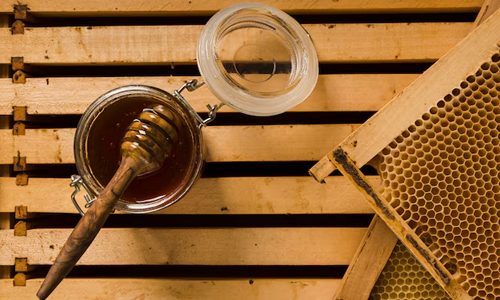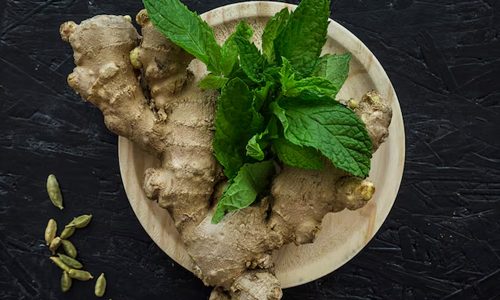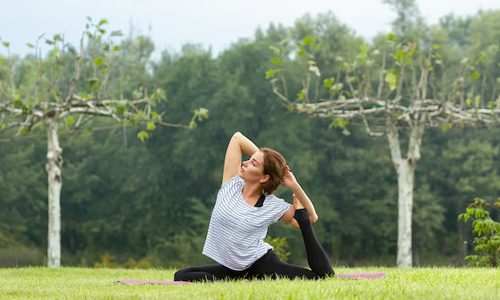Do you find yourself constantly sneezing, dealing with itchy eyes, or battling a runny nose? You’re not alone! Allergies affect millions of people in this world, making daily life uncomfortable. But what if you could find immediate relief without reaching for over-the-counter medications? This blog will show you how to stop allergies immediately using natural remedies.
Understand the Basics of Allergies
What Are Allergies?

Allergies occur when your immune system overreacts to a substance it sees as a threat, known as an allergen. Common types include seasonal allergies, food allergies, pet allergies, and dust allergies. Allergens can be found in pollen, certain foods, pet dander, dust mites, insect stings, and even medications, leading to various symptoms depending on the individual.
Causes of Allergies
Why do you think you have allergies It could be due to genetic factors, environmental triggers, or lifestyle influences. Identifying your specific triggers is the first step in learning how to stop allergies immediately and effectively.
Common Symptoms

Common symptoms of allergies include nasal congestion, coughing, and itchy throat. Some people may also experience fatigue, headaches, or difficulty breathing. Recognising these signs can help you take prompt action to stop allergies in their tracks.
Why Natural Remedies?

Why choose natural remedies over pharmaceuticals? Because natural solutions often come with fewer side effects and can provide long-term health benefits. Plus, they are usually more affordable and accessible. Unlike medications, which can sometimes mask symptoms, natural remedies often address the root cause of allergies. They also support overall wellness by boosting the immune system and reducing inflammation. Additionally, natural remedies are generally safer for long-term use and can be easily incorporated into daily routines.
How to stop Allergies Immediately
When allergies strike, finding quick and effective relief is essential. Fortunately, there are several natural remedies you can try that offer immediate relief without the side effects of conventional medications. Here are some proven methods to help you breathe easier right away.
1. Nasal Irrigation to Flush Out Allergens

Have you tried nasal irrigation? Using a Neti pot or saline spray can clear out allergens from your nasal passages, providing quick relief. Remember to use distilled or sterile water to avoid infections.
2. Steam Inhalation to Breathe Better

Ever thought about steam inhalation? This simple method can help open up your nasal passages which are blocked by allergens. Adding essential oils like eucalyptus or peppermint can enhance the effect.
3. Cold Compress during an Inflammation

Do your eyes feel puffy and irritated? Applying a cold compress can reduce inflammation and provide soothing relief.
4. Quercetin Supplements

Did you know that quercetin, found in foods like apples, berries, and onions, can help manage allergy symptoms? Consider adding a quercetin supplement to your diet for added benefits and to fight inflammation.
5. Herbal and Dietary Solutions
Looking for ways to stop allergies immediately through your diet? Herbal and dietary solutions offer powerful, natural relief. By incorporating specific foods and herbs, you can reduce inflammation and strengthen your immune system, helping to combat allergy symptoms effectively.
Local Honey

Honey can help with allergies, did you know? The theory is that consuming honey produced by bees in your area can help desensitize your immune system to local pollen.
6. Herbal Teas

Hope everyone enjoys herbal teas. Teas like peppermint, nettle, and chamomile can help reduce allergy symptoms. Try incorporating these into your daily routine for added relief.
7. Anti-Inflammatory Foods

Are you eating foods that fight inflammation? Foods like turmeric, ginger, and leafy greens can help reduce allergy symptoms. Why not try a new recipe that includes these ingredients?
Lifestyle Changes for Long-Term Allergy Management
Managing allergies isn’t just about finding immediate relief—it’s also about making sustainable lifestyle changes. By adjusting your daily habits and environment, you can significantly reduce allergy symptoms and improve your overall quality of life.
1. Environmental Control

Do you have any idea about how your environment affects your allergies? Your environment significantly impacts your allergies by exposing you to various allergens like pollen, dust mites, mold, and pet dander. Poor indoor air quality, high humidity, and inadequate ventilation can exacerbate allergy symptoms. Outdoor factors, such as pollen from trees, grasses, and weeds, can also trigger reactions, especially during certain seasons. Using air purifiers, and keeping windows closed during high pollen seasons can help reduce allergy symptoms and improve your overall well-being.
2. Regular Exercise

Regular exercise can boost your immune system and help reduce allergy symptoms. Exercises enhance the circulation of immune cells, regulate stress hormones, and improve lymphatic function. Engaging in regular exercise can have a direct impact on reducing allergy symptoms such as congestion, inflammation, and much more. Activities like jogging, yoga, and swimming are excellent choices.
3. Stress Management

Are you aware of the link between stress and allergies? When you’re stressed, your body goes into a “fight or flight” mode, releasing various hormones like cortisol and adrenaline. While these hormones are helpful in short bursts, chronic stress can weaken your immune system. A weakened immune system is less effective at managing allergic reactions, meaning your body may overreact to allergens. Techniques like meditation, and deep breathing exercises can help manage stress and, in turn, reduce allergy flare-ups.
Integrating Natural Remedies into Daily Life
This can be a game-changer for managing allergies effectively. By making small yet consistent changes to your routine, you can experience immediate relief and long-term benefits without relying on medication. Here’s how to get started:
Daily Routine Adjustments
Small changes in your daily routine can significantly minimise allergy symptoms. Start by keeping windows closed during high pollen seasons to prevent allergens from entering your home. Use an air purifier to reduce indoor allergens and maintain a regular cleaning schedule to eliminate dust and pet dander. Incorporate a morning and evening nasal rinse with saline solution to clear out allergens from your nasal passages. Showering before bed can remove pollen and other allergens from your skin and hair. Additionally, drinking herbal teas like peppermint or chamomile can help soothe allergy symptoms naturally. These simple adjustments can lead to noticeable improvements.
Seasonal Preparations
How do you prepare for allergy seasons? Anticipating peak allergy times and adjusting your environment can make a significant difference in how you manage your symptoms. Here are some effective strategies for different seasons:
Different Seasons |
Effective Strategies |
| Spring Allergies – High pollen counts | Keep windows closed, install HEPA filters, and after spending time outdoors, shower and change your clothes |
| Fall Allergies – Ragweed | Limit your outdoor activities, wash outdoor items regularly, and use a dehumidifier to reduce mold growth indoors |
| Summer Allergies – Grass pollen | Stay indoors, regularly mow your lawn, keep the grass short, and wear sunglasses to protect the eyes from pollen. |
| Winter Allergies – Dust mites and mold | Regular cleaning of the home, washing the bed with hot water, and cleaning the mold in the damp areas with appropriate cleaning agents |
Try These Tips Today!
By now, you should have a solid understanding of how to stop allergies immediately using natural methods. Recap the key points, try out the suggestions, and see what works best for you. Don’t forget to share your experiences and tips with others who might benefit from this knowledge.














